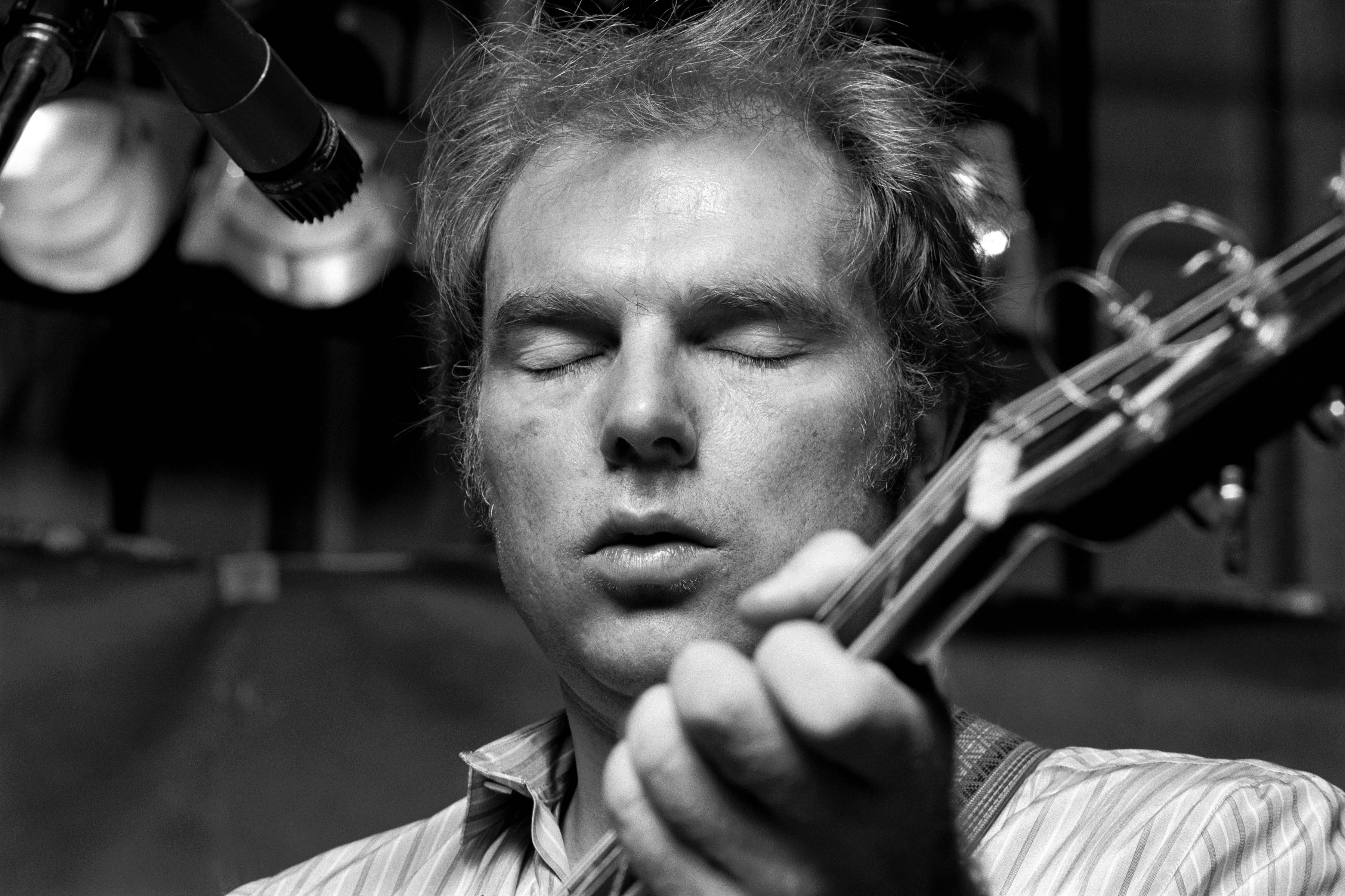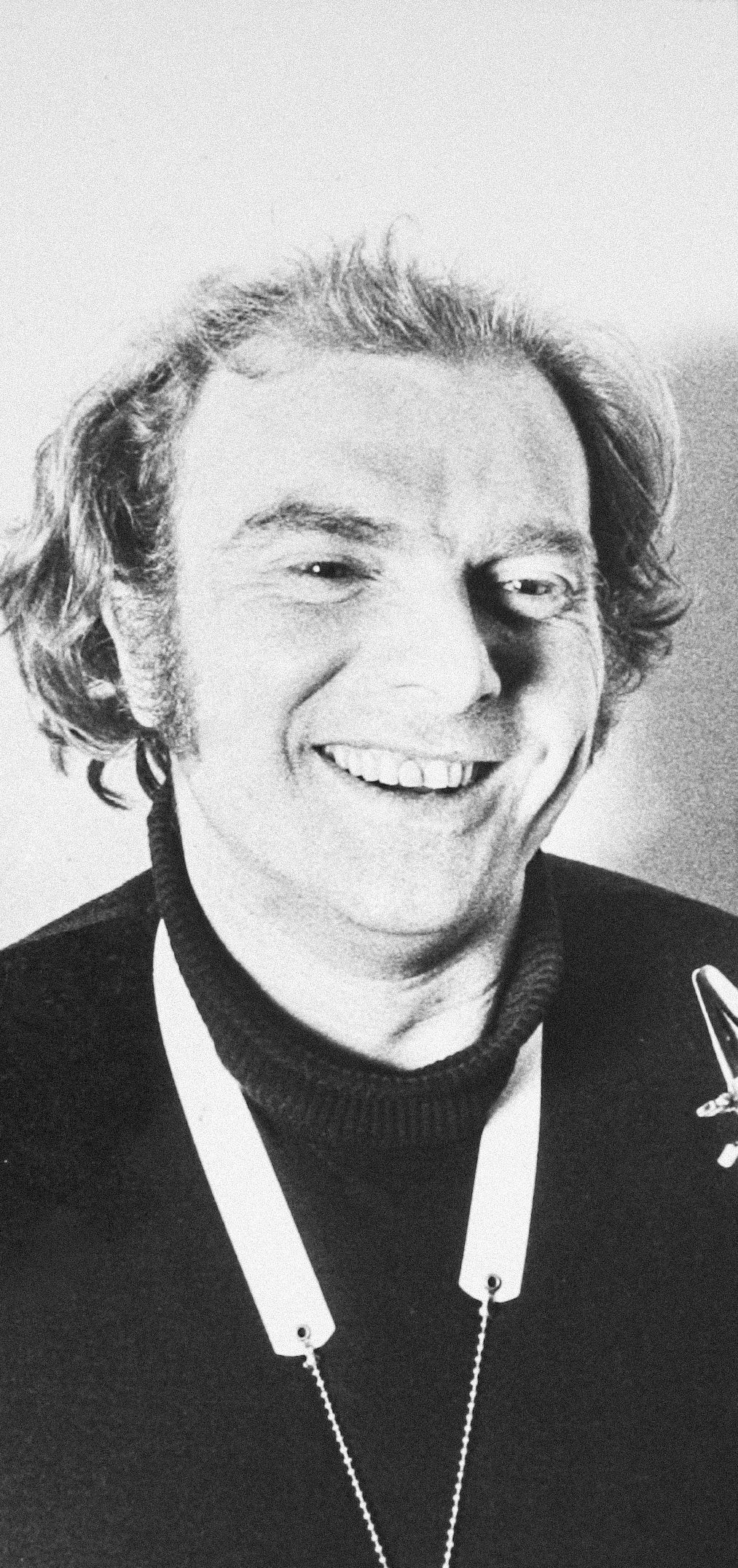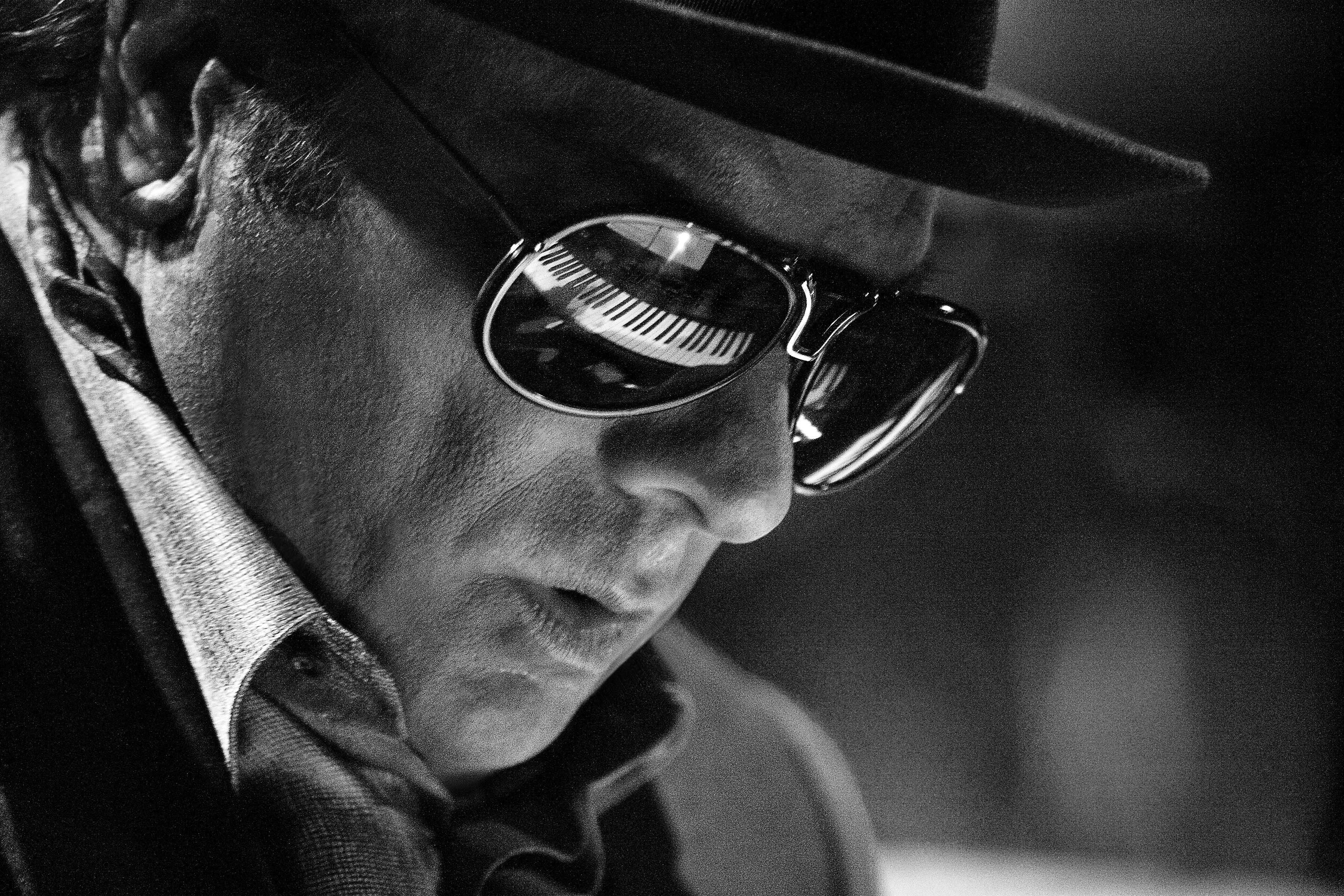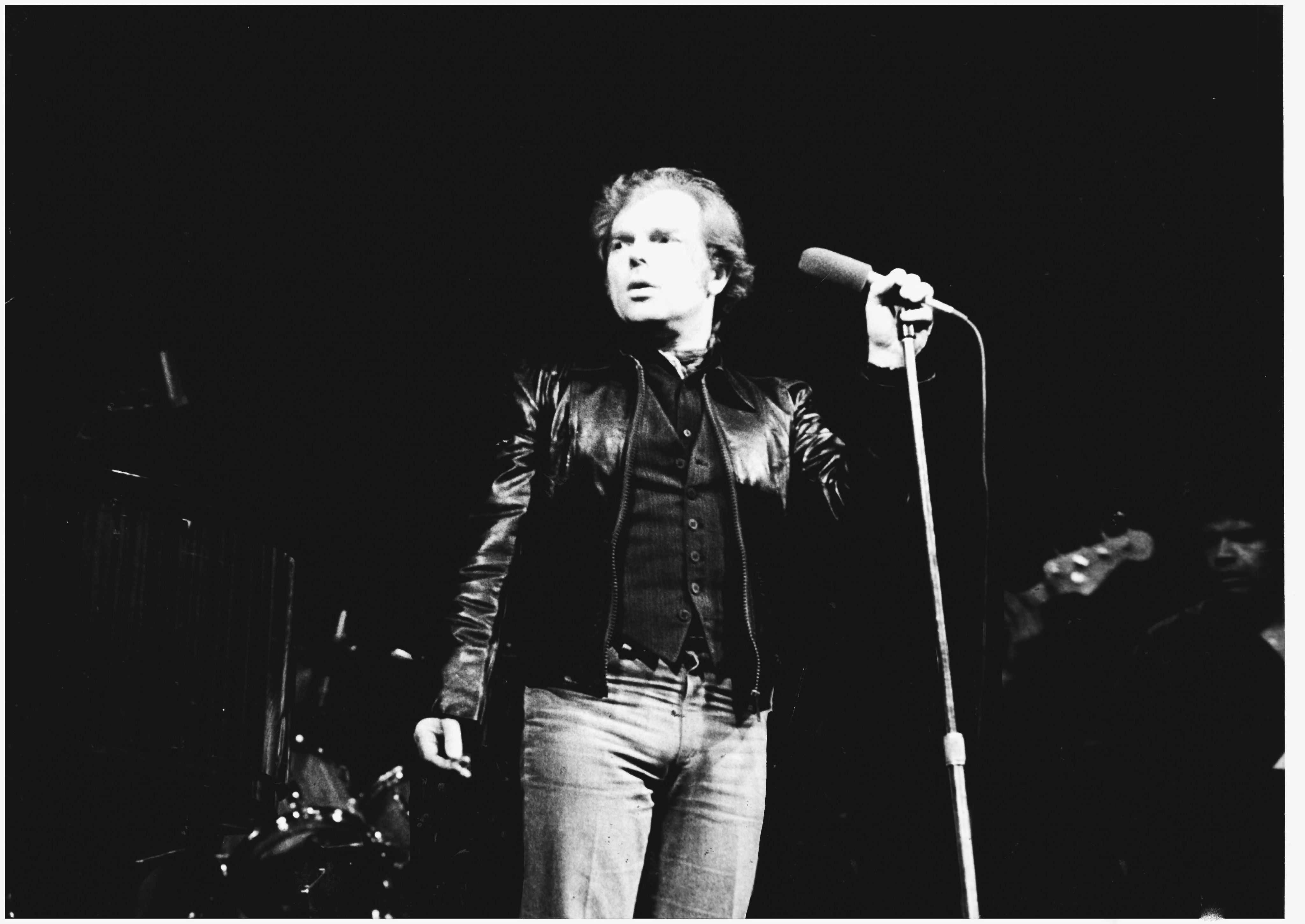Gloria
By Van Morrison and recorded by Them

With the British R’n’B boom underway, it may have seemed like a small leap for one Irishman to decide to write a song in the increasingly popular style. However, it was a giant step for musicians all over Ireland. Composed by lead singer Van Morrison from East Belfast, ‘Gloria’ appeared on the B-side of Them’s recording of the Big Joe Williams’ classic, ‘Baby Please Don’t Go’, which was released in November 1964 and went to No.10 in the UK in February 1965. Van’s song quickly overtook the A-side in notoriety, when a version by Shadows of Night went to No.10 in the US Billboard Hot 100. ‘Gloria’ would go on to be played and recorded by The Doors, Jimi Hendrix, Patti Smith, U2 – and hundreds more. It has appeared in numerous lists of The Greatest Songs of All Time and received the prestigious Grammy Hall of Fame Award in 1999.
Ireland had gone through a kind of cultural narrowing between partition in 1921 and the end of World War II. Censorship was commonplace and, by the 1950s, many of Ireland’s most ambitious writers felt the need to go into exile. Music was generally dominated by safe white pop with moon-in-June lyrics and folksy, singalong ballads and come-all-ye’s.
However, the post-war decade saw the first stirrings of a new, more outward-looking attitude to life and music, as American Forces Network radio and Radio Luxembourg combined to deliver blues, jazz, soul and popular music across the airwaves – and into Ireland. A new generation of young Irish musicians heard recordings by John Lee Hooker, Bo Diddley, Ray Charles and dozens of other black artists. Among the listeners was a young man, growing up in a house on Hyndford Street in East Belfast, by the name of George Ivan – later just Van – Morrison.
Born in 1945 into what is believed to have been a Jehovah’s Witness family, in religion-torn Northern Ireland, late night radio brought Van into contact with the music that was to shape his future. His first heroes were from the country and western field, and included Jimmie Rodgers and Eddy Arnold. Before long, he had moved on to blues and jazz, soaking up the recordings of Count Basie, Sonny Terry and Brownie McGhee, Jelly Roll Morton, Muddy Waters, Mahalia Jackson, Big Joe Turner, Ray Charles and more.

The Smile You Smile: Van Morrison photographed by Adrian Boot
Van Morrison photographed by Adrian Boot
On leaving school he honed his musical chops with The Monarchs Showband, before forming Them, a group of four like-minded local musicians, who began nurturing their uncompromising take on R’n’B at Belfast’s Maritime Hotel. Soon, a recording contract with Decca Records was signed and sealed, and the band moved to London. A debut single failed to gain traction, but they were given a second shot, opting to cover ‘Baby, Please Don’t Go’, a traditional blues from the repertoire of Delta legend Big Joe Williams that had been covered by John Lee Hooker.
When Van wrote ‘Gloria’ for the b-side, no one guessed that it would become a bona fide classic. But the song took on a life of its own. ‘Gloria’ was based around a contagious, repetitive, three-chord riff. The driving music acted as the bedrock for a story-telling lyric that was half-sung and half-spoken. It was raunchy and explicit, with Van vividly recounting details of night-time visits by his partner in unbridled teenage lust.
“It was the second song I ever wrote,” Van told Hot Press editor Niall Stokes. “Because I remember I wrote it in Hyndford Street. It was pretty simple, because the idea came from two places – two sources. The chords came from the Everly Brothers. The words came from listening to Muddy Waters and Bo Diddley’s song ‘I’m A Man’ – spelled M-A-N, so that was the idea of ‘G-L-O-R-I-A’. Also it was the same name as my cousin, who was thirteen years older than me. It wasn’t about her, but it was her name. The third musical idea, in the solo, was from a Little Walter record. The riff was from a Little Walter instrumental. So those three components were how I wrote that song. I wrote it in one sitting. It was pretty simple.”
It soon found its way into the repertoire of professional and part-time bands in Ireland, the UK and beyond. Wily band leaders quickly learned that if they needed to rejuvenate a flagging set, that riff and the lure of joining in with the spelling out of the name “G-L-O-R-I-A” would do the trick. It did then and it still does today.
Famed Bruce Springsteen guitarist and star of The Sopranos, Steve Van Zandt, has named ‘Louie Louie’ (by Sam the Sham and the Pharaohs) and ‘Gloria’ as the two most important garage-rock songs of all time. Indeed, the list of acts who have performed ‘Gloria’ is a veritable rock’n’roll Hall of Fame, including The Doors, Jimi Hendrix, Robert Plant, John Lee Hooker, U2, Eddie and The Hot Rods, Count Five, Ricky Lee Jones, Simple Minds, Radiators From Space – and far too many more to list here.
Irish band Therapy? performed ‘Gloria’ as part of the celebrations for Van’s 75th birthday in 2020, and the band’s main-man told Hot Press magazine, “We’d been playing ‘Gloria’ since the band began in 1989. It’s a wonderful song to play in rehearsals, and as we were younger musicians fuelled by the hardcore scene, its proto-punk relevance wasn’t lost on us.” Dea Matrona also did a powerful version as part of the same celebration.
Perhaps the greatest cover version of all was by Patti Smith, who brought a new level of transgressive sex to the song by addressing it woman-to-woman on her seminal album Horses (1975).
For Van Morrison, ‘Gloria’ was merely a start. When Them folded around 1966/7, Van took off for the USA where he recorded his extraordinary debut album Astral Weeks, mostly already written in Belfast, with its delectable mix of folk, jazz, blues, soul – and extraordinary, poetic lyrics.
The breadth of his lyrical influences was to become even more apparent, as his solo work enabled Morrison to find expression beyond the realm of the limiting pop/rock of Them. Soon we would benefit from his engagement with the poetry of such visionaries as WB Yeats, John Donne, William Blake, Wordsworth and Coleridge, in addition to immersing himself in Celtic mythology. Indeed, his Irish roots were on full display for his collaborative album Irish Heartbeat with The Chieftains, which also spawned a massively successful world tour. While admitting that touring and recording abroad makes one become “cosmopolitan”, Van has acknowledged his attachment to Ireland. “There’s a big part of me that’s just strictly involved with the island of Ireland”, was how he put it.

Portrait of the Artist, by Norman Seeff
Portrait of the Artist, by Norman Seeff
These days we can exult in a Morrison canon that contains some of the greatest albums of all time, including Moondance, Wavelength, and Beautiful Vision. His 2021 release, Latest Record Project Volume 1, proved that he has lost none of his fire nor his desire to speak forthrightly about the matters that most engage or disturb him.
There was a commensurate parade of hit songs along the way too, from ‘Brown Eyed Girl’ (still a major presence on global rock radio over fifty years on), through ‘Moondance’, ‘Crazy Love’, ‘Jackie Wilson Said’, ‘Saint Dominic’s Preview’, ‘Cleaning Windows’ and ‘Caravan’, to ‘Have I Told You Lately’.
As to how he does it, Van himself has said “When I go into the studio, I’m a magician. I make things happen. Either you come in and make something happen or you don’t.”
It did not take long after Van had embarked on his solo career for him to be admitted into the great pantheon of contemporary songwriters, sitting right up there alongside Lennon-McCartney, Jagger-Richards, Joni Mitchell, Leonard Cohen, and Bob Dylan; as well as those sometimes anonymous writers who penned the Blues songs that initially inspired him. When the rock writer Bill Flanagan asked Dylan if he felt a special connection with Van Morrison, Dylan replied with an unequivocal “Oh, yeah! Ever since Them, really. There’s been nothing Van’s done that hasn’t knocked me out.”
When Van was given a Brit Award for his Outstanding Contribution to Music in 1994, Dylan was filmed interrupting his own concert to send his warm congrats, sentiments that were shared by a host of big rock figures, from Bono and Bob Geldof, to Sting, John Lee Hooker and Peter Gabriel. While Dylan was talking to Van, his backing band was playing the riff from that song: ‘Gloria’.
Now why did they pick that one?

Van at the very Irish Lisdoonvarna Festival. Photo by Bernard Farrell
Van at the very Irish Lisdoonvarna Festival. Photo by Bernard Farrell
